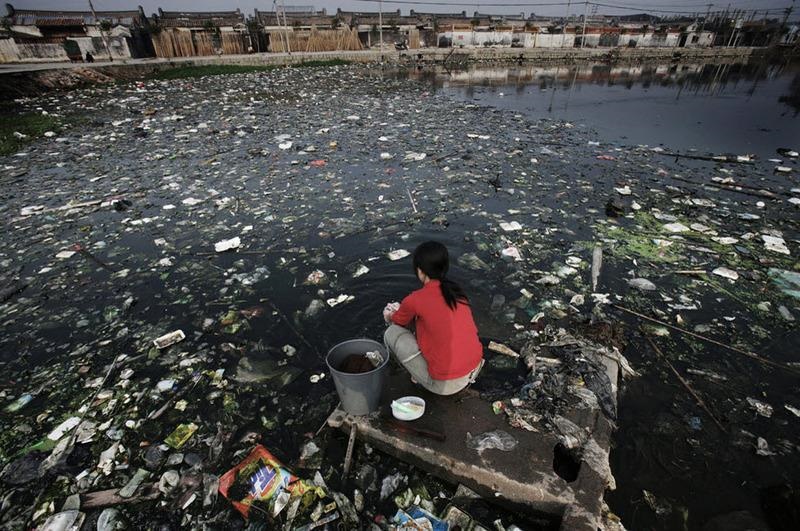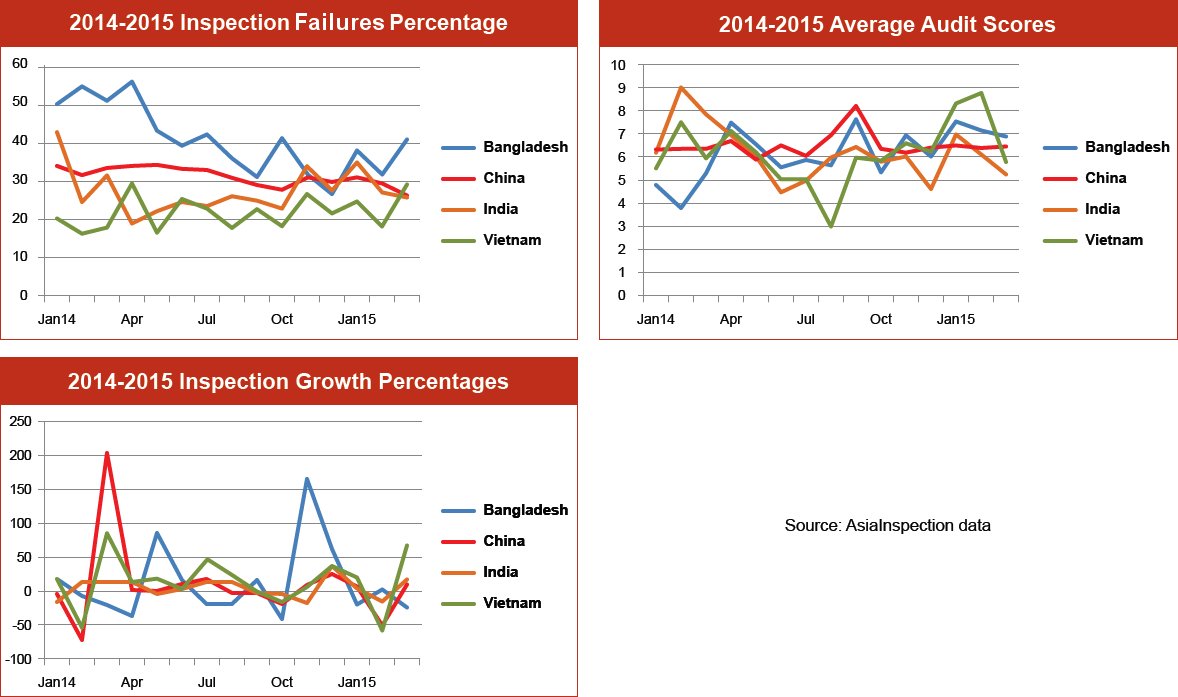QIMA 2015 Q2 Barometer
68 Million Children Forced to Work, Death at Work Every 15 Seconds
Hong Kong, April 7, 2015 – QIMA, a leading global quality control and compliance service provider that partners with brands, retailers and importers around the world to secure, manage and optimize their supply chain, today announces its 2015 Q2 Barometer, a quarterly synopsis on outsourced manufacturing and the quality control services industry.
Environmental and Social Standards Top Mandate for Upcoming G7 Summit
In a recent G7 conference held in early March, government representatives and stakeholders set a mandate for the upcoming G7 Summit to reach an agreement on a sustainable and ethical global supply chain1. The ILO published that every 15 seconds someone dies as a result of an occupational accident or disease1. Congruent with what seems to be a sharp rise in global awareness on ethical sourcing issues, QIMA saw demand for ethical audits increase by 65% year over year in Q1.
If the G7 Summit begins full implementation of a sustainable global supply chain, the burden would be on brands and importers to ensure that they adhere to these global standards. A local instance of such enforcement may start in France where a law passed in late March will potentially force all large corporations to demonstrate that they enforce social accountability through their supply chains, including subcontractors.
A key challenge when tackling ethical accountability is the ever growing complexity of supply chains. For instance, according to Sarah Labowitz, co-director of the Center for Business and Human Rights at NYU, unauthorized subcontracting remains rampant in Bangladesh creating a lack of transparency for buyers and consumers alike2. Concrete solutions exist: QIMA now provides GPS coordinates in all ethical audits performed which can be tied to the actual manufacturing location.
How is Water Managed in Global Supply Chains?

Environmental concerns are picking up in global supply chains: while much of the focus is still on labor conditions, recent updates show that brands and retailers are starting to take the environmental impact of their sourcing strategies seriously. In a briefing published in the run up to World Water Day, Sedex analyzed data from over 20,000 audits registered on the Sedex Global platform. The briefing introduces companies to water-related risks in their supply chain. 42% of audits by Sedex members performed at suppliers sites evidenced lacking permits for resource use and disposal, inadequate waste disposal systems and missing systems for checking environmental performance against relevant laws and customers’ requirements. In the wake of these concerns, QIMA has seen a rising interest in Q1 from buyers for Environmental Audits and Waste Water Testing.
Are Vietnam and Myanmar the Next Contenders?
Although China remains the dominant sourcing region by sheer volume, QIMA data confirms the trend that brands and retailers are sourcing more from neighboring countries. In terms of global inspections performed, from Q1 2014 to Q1 2015, China’s share in percentage dropped by 12 points.
According to the latest Purchasing Managers’ Index for manufacturing, Vietnam rose in both output and new orders3. Big brands are being increasingly drawn to Vietnam by a younger population and lower wages than countries such as China and Thailand. While US imports from China in January were down for the first time since 2008, Vietnam became the biggest exporter to the US among the ASEAN4. Meanwhile, Myanmar’s garment industry has seen significant growth, increasing by 300 million USD in the past year and has doubled in less than three years5.
QIMA figures confirm both trends with a staggering year over year increase of 190% in Vietnam and 113% in Myanmar for performed inspections. QIMA figures suggest this growth has not come at the expense of quality. Vietnam outperformed China in Q1 in terms of product quality: while China had a beyond AQL rate of 28% Vietnam was 24%.
Food Scandals Hit Chinese and Thai Exports
Asia continues to increase in both manufactured food and food scandals. This time Australia was struck in February by frozen mixed berries packed in China that were linked to an outbreak of hepatitis A6. Again in February, tuna canned in Thailand was linked to histamine poisoning. Australian Prime Minister Tony Abbott insisted that countries who want to export food to Australia must ensure the safety of their goods7.
AsiaFoodInspection performed services increased 64% year over year. For the first time in 11 months, food failure rates in China dropped to 41% in Q1 from 48% in Q4. Although too early to conclude on a global improvement in food safety practices, this can be seen as an encouraging sign and could be proof that buyers are becoming increasingly cautious.
QIMA Barometer Key KPIs
About QIMA - Your Eyes in the Supply Chain!™
QIMA (AI), a leading global quality control and compliance service provider that partners with brands, retailers and importers around the world to secure, manage and optimize their supply chain. With unique web-based quality control management, QIMA offers Product Inspection, Supplier Audit Programs and Laboratory Testing services for more than 4,000 clients worldwide. The 2015 Q2 Barometer is a quarterly synopsis on outsourced manufacturing and the quality control services performed by QIMA each year (product inspections, supplier audit programs and laboratory testing).
Press Contact
Michael Mesarch
Tel: (+86) 755 2223 9888
Email: press@qima.com
Footnotes
1. German Federal Government. G7 to reach agreement on sustainable supply chains. March 11, 2015.
http://www.bundesregierung.de/Content/EN/Artikel/2015/03_en/2015-03-10-g7-konkrete-lieferketten_en.html
2. The Sourcing Journal. Ethical Sourcing Forum: Subcontracting More Prevalent Than Brands Believe. March 27, 2015.
https://www.sourcingjournalonline.com/ethical-sourcing-forum-subcontracting-prevalent-brands-believe-td/
3. HSBC. HSBC Vietnam Manufacturing PMI™. April 1, 2015.
http://www.hsbc.com/news-and-insight/emerging-markets-pmi
4. United States Census Bureau. U.S. Trade in Goods by Country. [accessed March 27, 2015]
https://www.census.gov/foreign-trade/balance/
5. Myanmar Garment Manufacturers Association. Myanmar's Garment Sector - Opportunities & Challenges in 2015. January 2015.
http://www.just-style.com/market-research/myanmars-garment-sector-opportunities-challenges-in-2015_id229040.aspx
6. Australian Government Department of Health. Hepatitis A and frozen berry products recall. March 25, 2014
http://www.health.gov.au/internet/main/publishing.nsf/content/ohp-hep-a-frozen-berry.htm
7. Food Standards Australia & New Zealand. Histamine (Scombroid) Fish Poisoning. February 26, 2015.
http://www.foodstandards.gov.au/consumer/safety/Pages/Histamine-(Scombroid)-fish-poisoning.aspx


